Working Principle of Combine Harvester Gearbox
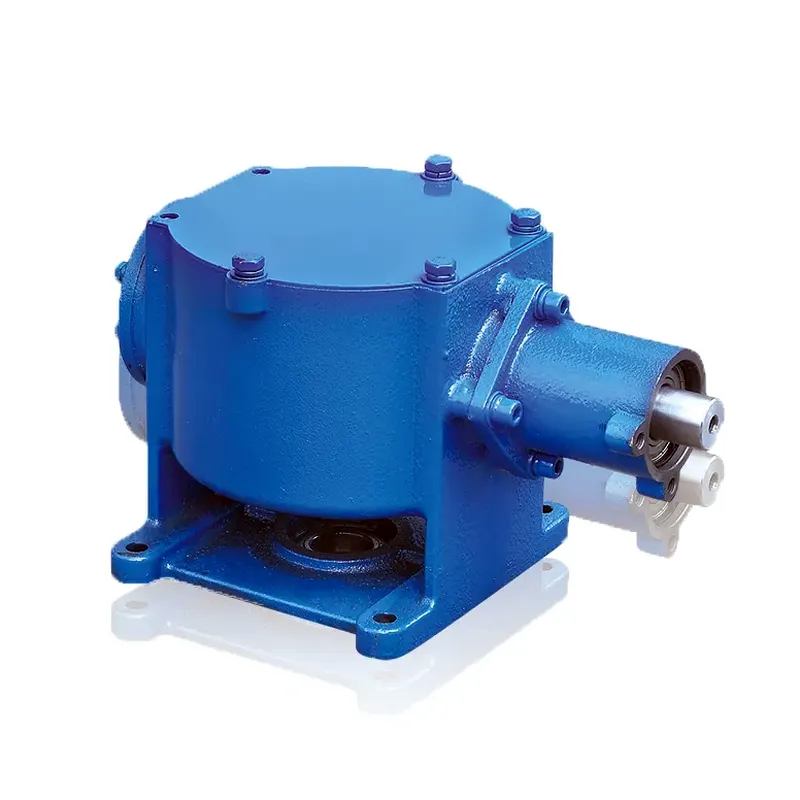
The combine harvester gearbox is a crucial component in the operation of agricultural grain harvesting machines. It plays a vital role in transferring power from the engine to various mechanical components that execute the harvesting process. Here's a detailed explanation of how the gearbox functions:
1. Power Input
The process begins when the combine harvester's engine generates mechanical power. This power is directed into the gearbox through the input shaft. The engine's rotational energy, characterized by speed and torque, is thus made available for conversion and transmission by the gearbox.
2. Gear Engagement
Within the gearbox, there are multiple gears of different sizes and ratios. These gears engage depending on the gear selected by the operator (either manually through a lever or automatically via an electronic control system). The selection of gears is based on the speed and torque requirements dictated by the harvesting conditions and the type of crop.
3. Speed and Torque Conversion
As the selected gears engage, they modify the engine's input speed and torque to a more suitable output for the task at hand. For instance, larger gears decrease the output speed but increase the torque, providing more power at a lower speed, which is essential for tough harvesting conditions. Conversely, smaller gears increase the output speed but decrease the torque, suitable for lighter conditions.
4. Power Output
The transformed power (now at a different speed and torque) is delivered from the gearbox to the harvester's operational components via the output shaft. This includes mechanisms like the threshing drum, cutting blades, and conveyor systems that are critical for the harvesting process.
5. Operational Control
The gearbox also integrates with other control systems in the combine harvester, such as the clutch and hydraulic systems. The clutch allows the gearbox to be smoothly engaged or disengaged from the engine, facilitating safe and efficient starts and stops. The hydraulic or electronic control systems may adjust the gear settings automatically in response to sensors that monitor load, crop density, or other operational parameters.
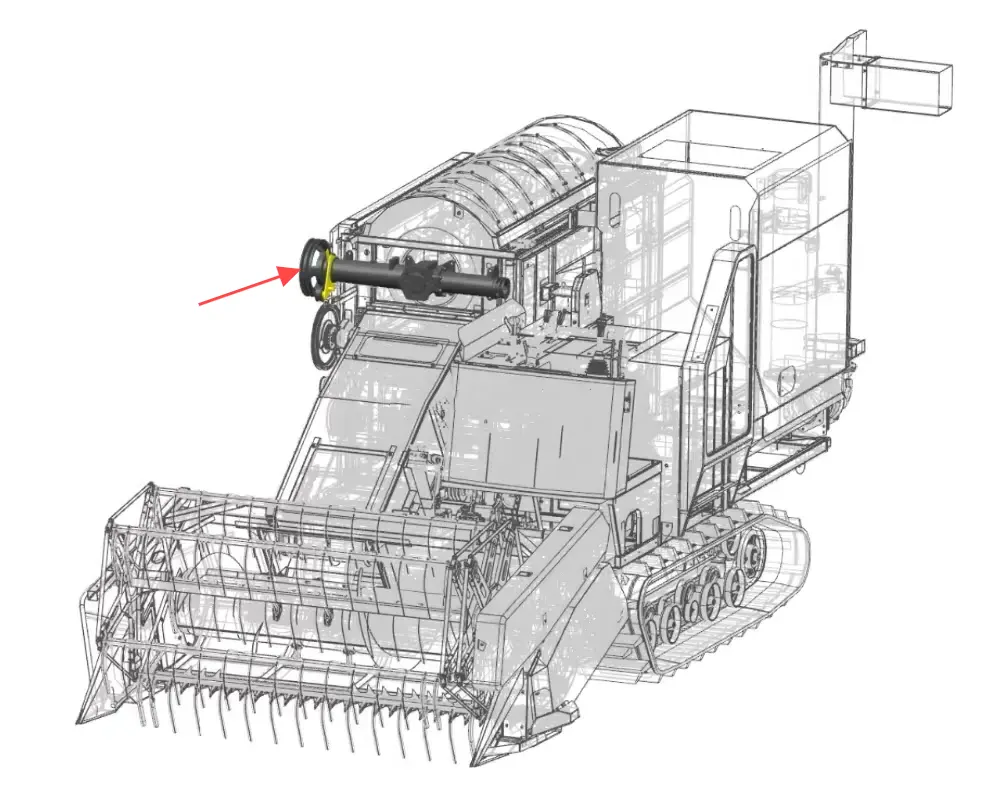
Proper Maintenance of Combine Harvester Gearbox
Proper maintenance of the combine harvester gearbox is crucial to ensure optimal performance, longevity, and safety of the machinery. Here's a detailed guide on maintaining the gearbox of a grain harvester:
1. Regular Lubrication
One of the most critical aspects of gearbox maintenance is ensuring that it is adequately lubricated. Use the recommended type and grade of lubricant as specified by the manual. Regularly check the oil level and top it up if necessary.
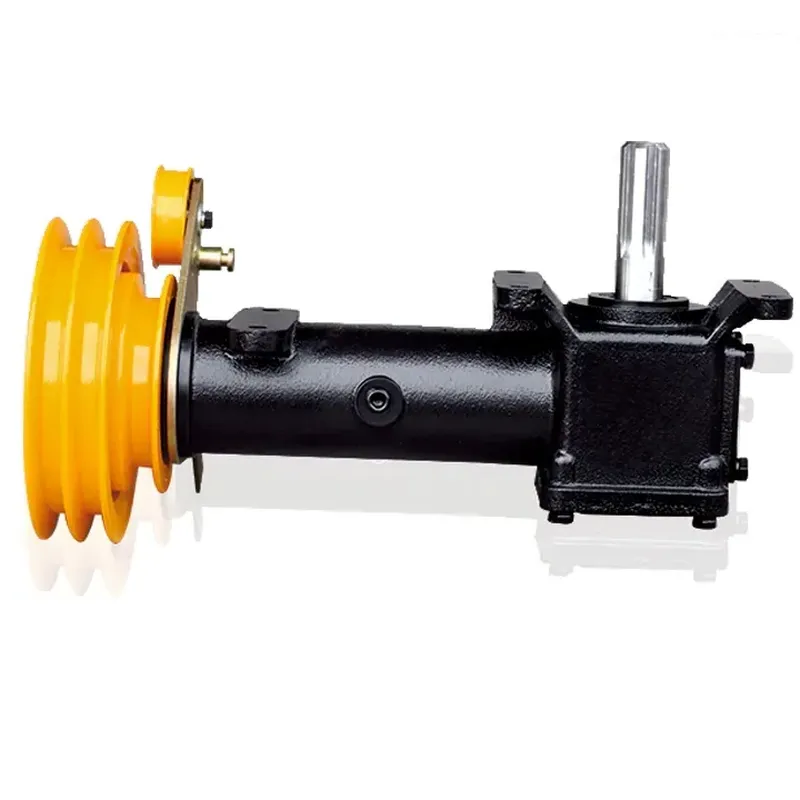
2. Inspect and Replace Worn Gears
Regularly inspect the gears within the gearbox for signs of wear, such as pitting, scoring, or chipping. Worn gears can impair the gearbox's efficiency and lead to further damage. Replace any gears that show significant wear to maintain the smooth operation and efficiency of the gearbox.
3. Check and Maintain Bearings
Bearings are pivotal for reducing friction and enabling smooth operation of moving components within the gearbox. Inspect bearings for signs of wear or damage, such as noise or increased vibration during operation.
4. Ensure Proper Alignment and Tightening
Misalignment of the gearbox can cause uneven load distribution and increased wear. Regularly check the alignment of the gearbox and adjust as necessary.
5. Monitor and Maintain Seals and Gaskets
Seals and gaskets prevent the ingress of contaminants such as dirt, dust, and water, which can degrade the quality of the lubricant and cause internal corrosion. Regularly check these components for any signs of deterioration or leaks and replace them if necessary to ensure the gearbox remains clean and functional.
6. Regular Cleaning
Keeping the gearbox clean is essential for preventing overheating and the accumulation of debris that can lead to wear and malfunction. Remove any dirt, dust, or residues that can accumulate on the gearbox housing and ventilation paths.
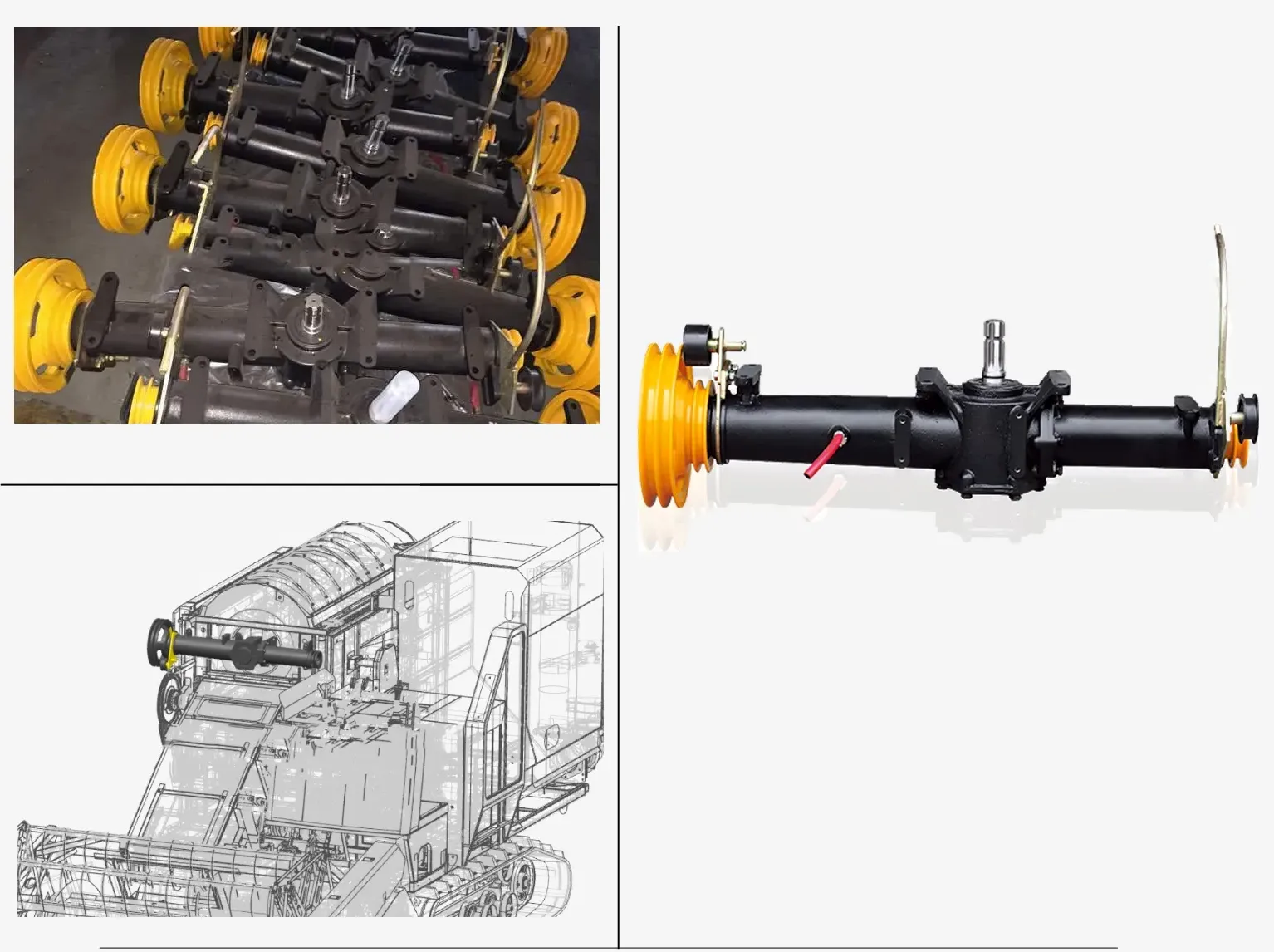
Choose the Right Combine Harvester Gearbox for Agricultural
Choosing the right gearbox for a grain harvester is crucial for achieving optimal performance, efficiency, and longevity of your agricultural machinery. Here are some detailed points to consider when selecting a combine harvester gearbox:
1. Torque and Power Capacity
Assess the power output and torque requirements of your harvester's engine. Choose a gearbox that matches or exceeds these specifications to ensure efficient power transmission without overloading.
2. Gear Ratios and Speed Variability
The gearbox should offer a range of gear ratios that provide the necessary speed adjustments for different harvesting conditions.
3. Durability and Material Quality
Since the gearbox will be exposed to harsh environmental conditions, including dust, debris, and varying weather, it is crucial to select one made from high-quality, durable materials.
4. Ease of Maintenance and Repair
Consider the maintenance requirements of the gearbox. A model designed with accessible parts for quick inspection, lubrication, and replacement can significantly reduce downtime.
5. Compatibility with Harvester
The gearbox must be compatible with your specific model of grain harvester.

Why Choose AGKNX's Combine Harvester Gearbox?
AGKNX is a prominent manufacturer of high-performance combine harvester gearboxes for a variety of applications. Our combine harvester gearboxes are a powerful replacement option for John Deere, Case IH, CLAAS, New Holland, Kubota, Lovol, Zoomlion, Krone, Shibaura, Kioti, Challenger, Versatile, Valtra, and other brands.
If you want to buy a combine harvester gearbox, please get in touch with us.
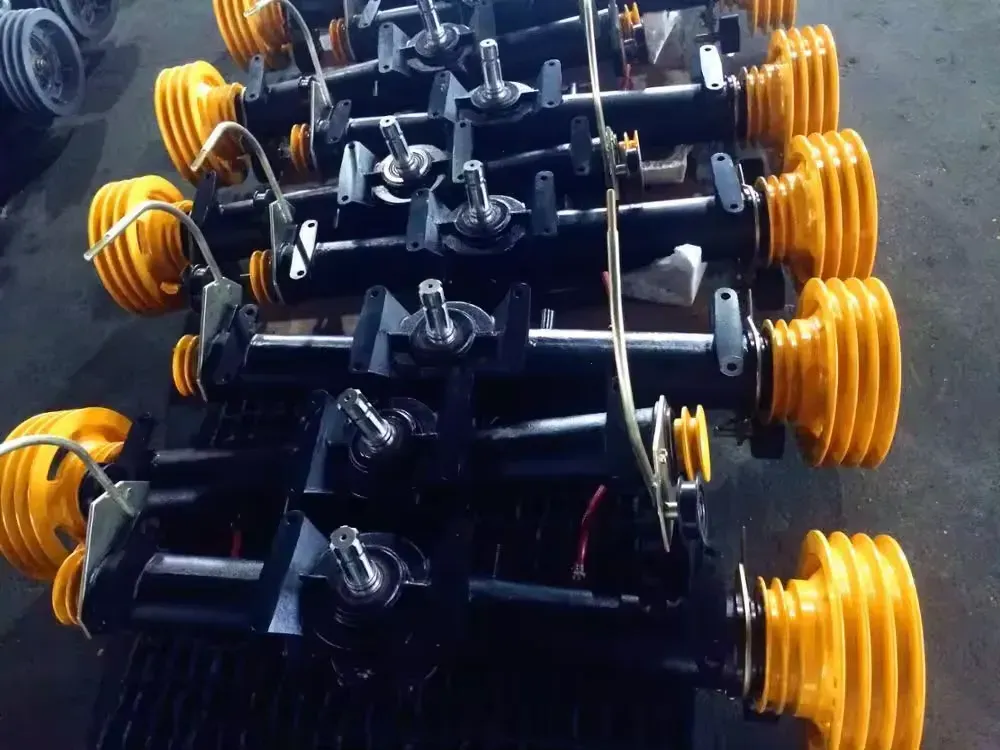
Professionalism
AGKNX prides itself on its professionalism in manufacturing high-quality combine harvester gearboxes.
International Certifications
Our gearboxes meet international quality standards and certifications, ensuring reliability and performance.
Customized Services
We offer customized gearbox solutions to meet specific requirements and applications.
Production Facilities
Our state-of-the-art production facilities ensure precision manufacturing and consistent quality.
After-Sales Services
We provide comprehensive after-sales support to ensure customer satisfaction and product longevity.
